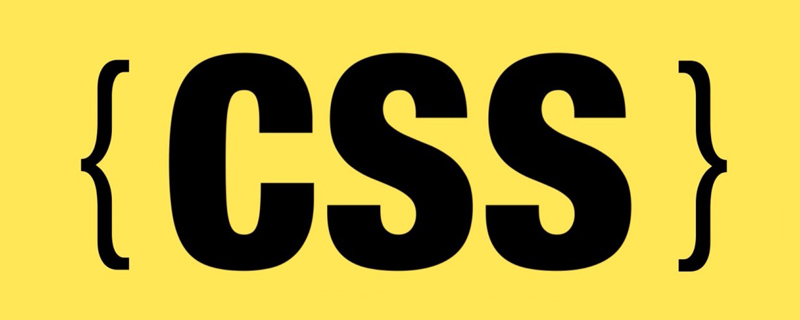
Why should we adapt?
For example, for a mobile page, the visual draft given by the designer has a canvas width of 750, and the size of a yellow area in the visual draft is 702 x 300, and is centered in the artboard. We hope that the presentation ratio in any device is the same as in the mockup, scaling proportionally according to the width of the layout viewport.

On the mobile side, we generally set the layout viewport width = device width, that is, the area where the content is presented is within the device screen.
<meta name="viewport" content="width=device-width, initial-scale=1.0">
But different devices have different widths, so the width of the layout viewport is also different. For example, the layout viewport width of iPhone 6 is 375, and the layout viewport width of iPhone6 Plus is 414.
(Related video tutorial recommendation: css video tutorial)
For a given visual draft with a canvas width of 750, if the layout viewport width is 375 on an iPhone 6 To render on the device, we can divide the pixel value of the element in the visual draft by 2. The code is as follows:
.box{
width: 351px;
height: 150px;
margin-top: 40px;
background: #F5A623;
}Then the rendering on the iPhone 6 is as shown on the right, which is consistent with the layout of the visual draft on the left.

But the same code appears differently on the iPhone 6 Plus, and the distance between the two sides becomes larger. Because the layout viewport of iPhone 6 Plus is wider than that of iPhone 6, the size of the rectangular frame has not changed, it is still 315 x 150.

For a given mockup with a canvas width of 750, if rendered on an iPhone 6 Plus device with a layout viewport width of 414, we can change the size of the elements in the mockup The pixel value is divided proportionally by (750 / 414), that is:
.box{
width: 387.5px;
height: 165.6px;
margin-top: 44.2px;
background: #F5A623;
}The page rendering effect can also be the same as the visual draft.

In order to render the same effect as the visual draft on pages with different device widths (different viewport widths), different CSS pixel values need to be written. Our goal is to use the same CSS code to display the same effect as the visual draft on devices of different widths. In layman's terms, it means scaling equally on different devices according to the size ratio of the elements in the visual draft to the canvas, so as to achieve the same effect on different devices. Adaptive effects on the device.
Use Rem layout to solve adaptive problems
How to use the same CSS code to make the element size change with the width of the layout viewport according to the proportion in the visual draft, etc. Than Zoom?
We combine the characteristics of the relative unit rem in CSS. The pixel value of the rem unit is relative to the font-size of the root element (HTML element). For example: if the font-size of HTML is 100px, and the width of an element is set to 2rem in the CSS style, then the width of this element on the page will be 200px.
Find such a relationship based on the proportional scaling of the elements in the visual draft:
视觉稿元素尺寸 / 视觉稿画布宽度 = (rem 值 * HTML 元素的 font-size) / 布局视口宽度 = rem 值 * (HTML 元素的 font-size / 布局视口宽度) = rem 值 / (布局视口宽度 / HTML 元素的 font-size)
If:
布局视口宽度 / HTML 元素的 font-size = 定值 N
It can be achieved with the same CSS code Adaptable in any device.
rem 值 = N * (视觉稿元素尺寸 / 视觉稿画布宽度 )
So, we only need to determine an N value and complete two more steps to achieve self-adaptation:
Step 1: Dynamically set the font-size of the HTML element = layout viewport width / N
Step 2: Convert the CSS pixel value of the element exported in the visual draft into rem unit: rem value = N * (visual draft element size / visual draft canvas width)
If The canvas width of your mockup is 750. In order to facilitate the calculation of the rem value, you can choose to set N = 7.5. In this way, you only need to divide the size value in the mockup by 100 to get the CSS pixel value in rem units.
Recommended tutorial: CSS introductory tutorial
The above is the detailed content of How to use Rem layout to achieve adaptive effects in css. For more information, please follow other related articles on the PHP Chinese website!
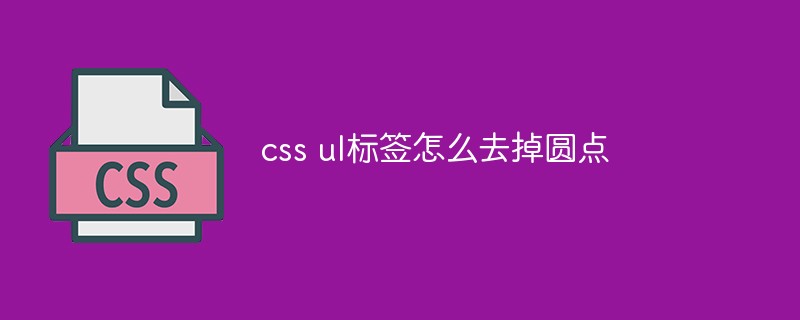 css ul标签怎么去掉圆点Apr 25, 2022 pm 05:55 PM
css ul标签怎么去掉圆点Apr 25, 2022 pm 05:55 PM在css中,可用list-style-type属性来去掉ul的圆点标记,语法为“ul{list-style-type:none}”;list-style-type属性可设置列表项标记的类型,当值为“none”可不定义标记,也可去除已有标记。
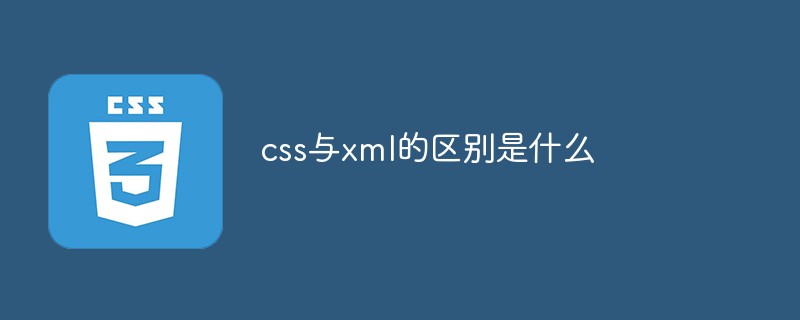 css与xml的区别是什么Apr 24, 2022 am 11:21 AM
css与xml的区别是什么Apr 24, 2022 am 11:21 AM区别是:css是层叠样式表单,是将样式信息与网页内容分离的一种标记语言,主要用来设计网页的样式,还可以对网页各元素进行格式化;xml是可扩展标记语言,是一种数据存储语言,用于使用简单的标记描述数据,将文档分成许多部件并对这些部件加以标识。
 css3怎么实现鼠标隐藏效果Apr 27, 2022 pm 05:20 PM
css3怎么实现鼠标隐藏效果Apr 27, 2022 pm 05:20 PM在css中,可以利用cursor属性实现鼠标隐藏效果,该属性用于定义鼠标指针放在一个元素边界范围内时所用的光标形状,当属性值设置为none时,就可以实现鼠标隐藏效果,语法为“元素{cursor:none}”。
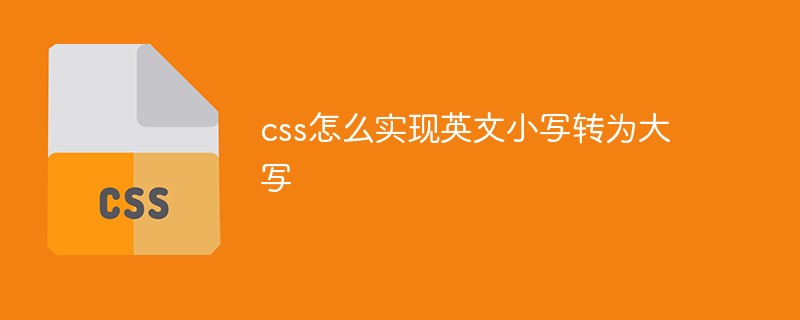 css怎么实现英文小写转为大写Apr 25, 2022 pm 06:35 PM
css怎么实现英文小写转为大写Apr 25, 2022 pm 06:35 PM转换方法:1、给英文元素添加“text-transform: uppercase;”样式,可将所有的英文字母都变成大写;2、给英文元素添加“text-transform:capitalize;”样式,可将英文文本中每个单词的首字母变为大写。
 rtl在css是什么意思Apr 24, 2022 am 11:07 AM
rtl在css是什么意思Apr 24, 2022 am 11:07 AM在css中,rtl是“right-to-left”的缩写,是从右往左的意思,指的是内联内容从右往左依次排布,是direction属性的一个属性值;该属性规定了文本的方向和书写方向,语法为“元素{direction:rtl}”。
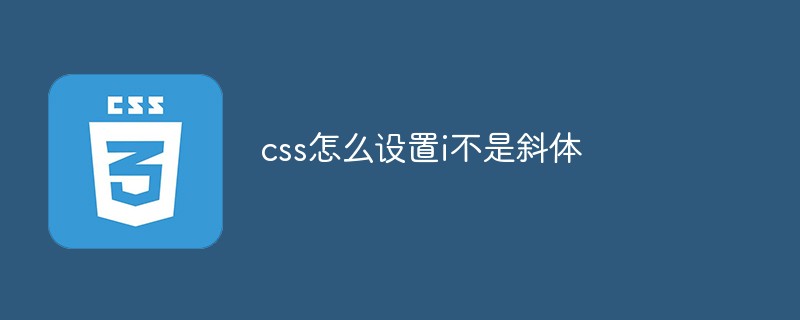 css怎么设置i不是斜体Apr 20, 2022 am 10:36 AM
css怎么设置i不是斜体Apr 20, 2022 am 10:36 AM在css中,可以利用“font-style”属性设置i元素不是斜体样式,该属性用于指定文本的字体样式,当属性值设置为“normal”时,会显示元素的标准字体样式,语法为“i元素{font-style:normal}”。
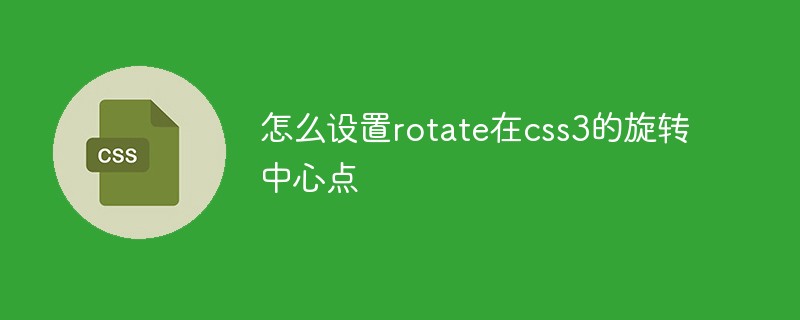 怎么设置rotate在css3的旋转中心点Apr 24, 2022 am 10:50 AM
怎么设置rotate在css3的旋转中心点Apr 24, 2022 am 10:50 AM在css3中,可以用“transform-origin”属性设置rotate的旋转中心点,该属性可更改转换元素的位置,第一个参数设置x轴的旋转位置,第二个参数设置y轴旋转位置,语法为“transform-origin:x轴位置 y轴位置”。


Hot AI Tools

Undresser.AI Undress
AI-powered app for creating realistic nude photos

AI Clothes Remover
Online AI tool for removing clothes from photos.

Undress AI Tool
Undress images for free

Clothoff.io
AI clothes remover

AI Hentai Generator
Generate AI Hentai for free.

Hot Article

Hot Tools

SublimeText3 Chinese version
Chinese version, very easy to use

mPDF
mPDF is a PHP library that can generate PDF files from UTF-8 encoded HTML. The original author, Ian Back, wrote mPDF to output PDF files "on the fly" from his website and handle different languages. It is slower than original scripts like HTML2FPDF and produces larger files when using Unicode fonts, but supports CSS styles etc. and has a lot of enhancements. Supports almost all languages, including RTL (Arabic and Hebrew) and CJK (Chinese, Japanese and Korean). Supports nested block-level elements (such as P, DIV),

SublimeText3 Linux new version
SublimeText3 Linux latest version

MantisBT
Mantis is an easy-to-deploy web-based defect tracking tool designed to aid in product defect tracking. It requires PHP, MySQL and a web server. Check out our demo and hosting services.

SAP NetWeaver Server Adapter for Eclipse
Integrate Eclipse with SAP NetWeaver application server.





